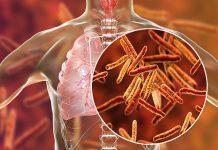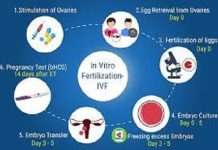
A research team from the UK Health Security Agency has found that monkeypox transmission can happen even before its symptoms appear.
The study titled “Transmission dynamics of monkeypox in the United Kingdom,” published in the British Medical Journal, provided the first evidence indicating the virus can be transmitted this way.
The researchers, including Thomas Ward, Rachel Christie, and Robert Paton disclosed this on Wednesday, 2 November, 2022.
The purpose of the study was to learn more about monkeypox transmission in Britain, they said. This allows for the utilisation of routine monitoring and contact tracing information for 2,746 individuals in Britain who tested positive between May and August.
The patients reported being 95% homosexual, bisexual, or males who had intercourse with men, and their average age was 38.
Scientist examined the “serial interval,” or the gap between the development of symptoms in one instance and those in related cases, as well as the incubation period, or the average delay between introduction to the virus and the beginning of symptoms.
The median serial interval was discovered to be shorter than the median incubation duration using two statistical models. According to the researchers' report, this demonstrates that “significant” transmission occurred prior to the occurrence or identification of symptoms.
The team reported that up to 53% of transmission may have occurred before symptoms started, and that the longest interval before symptoms started during which transmission was observed was four days.
The study raises concerns about how monkeypox is being treated globally, including if advising individuals to isolate when symptoms arise is sufficient to stop the virus from spreading.
To stop the spread, several wealthy nations have immunised high-risk people, but there aren't any vaccines accessible in Africa.
If confirmed by more research, independent experts suggested the results might have significant ramifications for the world's infection control.
“These are urgent questions that need answers,” said Boghuma Kabisen Titanji, assistant professor of medicine at Emory University, Atlanta.
Other scientists said the work was robust but needed clinical data before it could be labeled definitive or applied globally.
“It's an important part of the transmission jigsaw,” said Jake Dunning, senior fellow at the Pandemic Sciences Institute at Oxford University, “but personally I want to see it joined up with other pieces.”













I vote for Ozioma Ezeofor